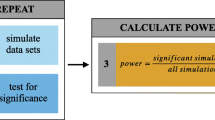Abstract
A recent group of social scientists have argued that counterfactual questions play an essential role in their disciplines, and that it is possible to have rigorous methods to investigate them. Unfortunately, there has been little (if any) interaction between these social scientists and the philosophers who have long held that rigorous counterfactual reasoning is possible. In this paper, I hope to encourage some fresh thinking on both sides by creating new connections between them. I describe what I term “problem of selecting antecedent scenarios,” and show that this is an essential challenge in real-life counterfactual reasoning. Then, I demonstrate that the major extant theories of counterfactuals (especially the Lewis/Stalnaker theory and Igal Kvart’s rival account) are unable to solve this problem. I show that there are instances of real-life counterfactual reasoning in the social sciences that are counterexamples to both of these accounts. And finally, I develop a new theory of how to select antecedent scenarios that overcomes these difficulties, and so would be part of a more adequate theory of counterfactuals (and counterfactual reasoning).
Similar content being viewed by others
References
Bennett J. (2003) A philosophical guide to conditionals. Oxford University Press, Oxford
Cowley, R. (eds) (2000) What if? The world’s foremost military historians imagine what might have been. Berkley Books, New York
Cowley, R. (eds) (2002) What if? 2: Eminent historians imagine what might have been. Berkley Books, New York
Cowley, R. (eds) (2004) What ifs of American history. Berkley Books, New York
Eire C. M. N. (2006) Religious kitsch or industrial revolution?. In: Tetlock P. E., Lebow R. N., Parker G. (eds) Unmaking the west: “What if” scenarios that rewrite world history. University of Michigan Press, Ann Arbor, MI, pp 145–167
Elster J. (1978) Logic and society: Contradictions and possible worlds. Wiley, New York
Fearon J. (1991) Counterfactuals and hypothesis testing in political science. World Politics 43: 169–195
Fearon J. (1996) Causes and counterfactuals in social science. In: Tetlock P. E., Belkin A. (eds) Counterfactual thought experiments in global politics: Logical, methodological, and psychological perspectives. Princeton University Press, Princeton, pp 39–68
Ferguson, N. (eds) (1999) Virtual history: Alternatives and counterfactuals. Basic Books, New York
Fogel R. W. (1964) Railroads and economic growth. Johns Hopkins Press, Baltimore
Goodman N. (1983) Fact, fiction, and forecast. Harvard University Press, Cambridge, MA
Hawthorn G. (1991) Plausible worlds: Possibility and understanding in history and the social sciences. Cambridge University Press, Cambridge
Kahneman D. (1995) Varieties of counterfactual thinking. In: Roese N. J., Olson J. M. (eds) The social psychology of counterfactual thinking. Lawrence Erlbaum Associates, Mahwah, NJ, pp 1–56
Kahneman D., Miller D. (1986) Norm theory: Comparing reality to its alternatives. Psychological Review 93: 136–153
Khong Y. F. (1996) Confronting Hitler and its consequences. In: Tetlock P. E., Belkin A. (eds) Counterfactual thought experiments in global politics: Logical, methodological, and psychological perspectives. Princeton University Press, Princeton, pp 95–118
Kvart I. (1986) A theory of counterfactuals. Hackett Publishing Company, Indianapolis
Kvart I. (1992) Counterfactuals. Erkenntnis 36: 139–179
Kvart I. (1994) Counterfactuals: Ambiguities, true premises, and knowledge. Synthese 100: 133–164
Lebow R. N. (2000) What’s so different about a counterfactual?. World Politics 52: 550–585
Lebow R. N. (2001) Contingency, catalysts, and international systems change. Political Science Quarterly 115(4): 591–616
Lebow R. N., Breslauer G. (2004) Leadership and the end of the cold war. In: Herrmann R. K., Lebow R. N. (eds) Ending the cold war: Interpretations, causation and the study of international relations. Palgrave Macmillan, New York, pp 161–188
Lewis D. (1973) Counterfactuals. Basil Blackwell, Oxford
Lewis D. (1979) Counterfactual dependence and time’s arrow. Nous 13: 455–476
Lewis, D. (1986). Postscripts to ‘Counterfactual dependence and time’s arrow’. In Philosophical papers (Vol. 2, pp. 52–66). Oxford: Oxford University Press.
McMullen M. N., Markman K. D., Gavanski I. (1995) Living in neither the best nor the worst of all possible worlds. In: Roese N. J., Olson J. M. (eds) The social psychology of counterfactual thinking. Lawrence Erlbaum Associates, Mahwah, NJ, pp 133–168
Roese N. J., Olson J. M. (1995a) Counterfactual thinking: A critical overview. In: Roese N. J., Olson J. M. (eds) The social psychology of counterfactual thinking. Lawrence Erlbaum Associates, Mahwah, NJ, pp 1–56
Roese N. J., Olson J. M. (1995b) Functions of counterfactual thinking. In: Roese N. J., Olson J. M. (eds) The social psychology of counterfactual thinking. Lawrence Erlbaum Associates, Mahwah, NJ, pp 169–198
Stalnaker R. (1968) A theory of conditionals. In: Rescher N. (eds) Studies in logical theory. Oxford University Press, Oxford
Tetlock P. E., Belkin A. (1996) Counterfactual thought experiments in global politics: Logical, methodological, and psychological perspectives. In: Tetlock P. E., Belkin A. (eds) Counterfactual thought experiments in global politics: Logical, methodological, and psychological perspectives. Princeton University Press, Princeton, pp 3–38
Tetlock P. E., Parker G. (2006a) Counterfactual history. In: Tetlock P. E., Lebow R. N., Parker G. (eds) Unmaking the west: “What if” scenarios that rewrite world history. University of Michigan Press, Ann Arbor, MI, pp 363–392
Tetlock P. E., Parker G. (2006b) Counterfactual thought experiments. In: Tetlock P. E., Lebow R. N., Parker G. (eds) Unmaking the west: “What if” scenarios that rewrite world history. University of Michigan Press, Ann Arbor, MI, pp 14–46
Tsouras, P. G. (eds) (2001) Rising sun victorious: The alternate history of how the Japanese won the Pacific War. Greenhill Books, London
Tsouras, P. G. (eds) (2002) Third reich victorious: Alternate decisions of WWII. Greenhill Books, London
Weber M. (1949) The methodology of the social sciences. Free Press, Glencoe, IL
Author information
Authors and Affiliations
Corresponding author
Rights and permissions
About this article
Cite this article
Hendrickson, N. Counterfactual reasoning and the problem of selecting antecedent scenarios. Synthese 185, 365–386 (2012). https://doi.org/10.1007/s11229-010-9824-1
Received:
Accepted:
Published:
Issue Date:
DOI: https://doi.org/10.1007/s11229-010-9824-1




